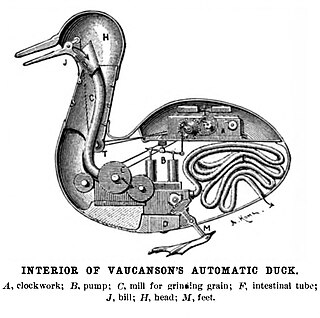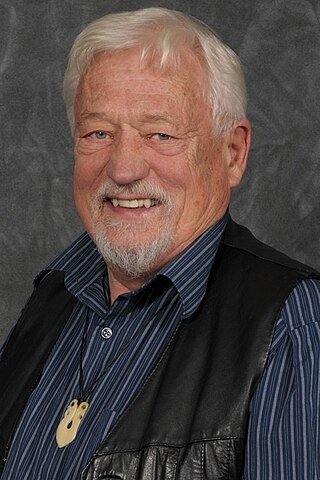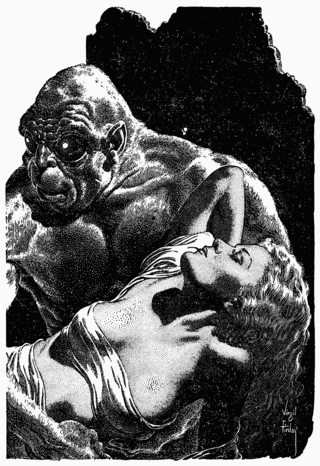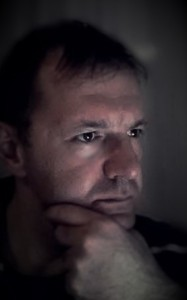Related Research Articles

Posthumanism or post-humanism is an idea in continental philosophy and critical theory responding to the presence of anthropocentrism in 21st-century thought. Posthumanization comprises "those processes by which a society comes to include members other than 'natural' biological human beings who, in one way or another, contribute to the structures, dynamics, or meaning of the society."

Reductionism is any of several related philosophical ideas regarding the associations between phenomena which can be described in terms of simpler or more fundamental phenomena. It is also described as an intellectual and philosophical position that interprets a complex system as the sum of its parts.

Hermeneutics is the theory and methodology of interpretation, especially the interpretation of biblical texts, wisdom literature, and philosophical texts. As necessary, hermeneutics may include the art of understanding and communication.
An unobservable is an entity whose existence, nature, properties, qualities or relations are not directly observable by humans. In philosophy of science, typical examples of "unobservables" are the force of gravity, causation and beliefs or desires. The distinction between observable and unobservable plays a central role in Immanuel Kant's distinction between noumena and phenomena as well as in John Locke's distinction between primary and secondary qualities. The theory that unobservables posited by scientific theories exist is referred to as scientific realism. It contrasts with instrumentalism, which asserts that we should withhold ontological commitments to unobservables even though it is useful for scientific theories to refer to them. There is considerable disagreement about which objects should be classified as unobservable, for example, whether bacteria studied using microscopes or positrons studied using cloud chambers count as unobservable. Different notions of unobservability have been formulated corresponding to different types of obstacles to their observation.
Actor–network theory (ANT) is a theoretical and methodological approach to social theory where everything in the social and natural worlds exists in constantly shifting networks of relationships. It posits that nothing exists outside those relationships. All the factors involved in a social situation are on the same level, and thus there are no external social forces beyond what and how the network participants interact at present. Thus, objects, ideas, processes, and any other relevant factors are seen as just as important in creating social situations as humans.

Wilhelm Dilthey was a German historian, psychologist, sociologist, and hermeneutic philosopher, who held Georg Wilhelm Friedrich Hegel's Chair in Philosophy at the University of Berlin. As a polymathic philosopher, working in a modern research university, Dilthey's research interests revolved around questions of scientific methodology, historical evidence and history's status as a science.
Productive forces, productive powers, or forces of production is a central idea in Marxism and historical materialism.

Personalism is an intellectual stance that emphasizes the importance of human persons. Personalism exists in many different versions, and this makes it somewhat difficult to define as a philosophical and theological movement. Friedrich Schleiermacher first used the term personalism in print in 1799. One can trace the concept back to earlier thinkers in various parts of the world.
Theories of technological change and innovation attempt to explain the factors that shape technological innovation as well as the impact of technology on society and culture. Some of the most contemporary theories of technological change reject two of the previous views: the linear model of technological innovation and other, the technological determinism. To challenge the linear model, some of today's theories of technological change and innovation point to the history of technology, where they find evidence that technological innovation often gives rise to new scientific fields, and emphasizes the important role that social networks and cultural values play in creating and shaping technological artifacts. To challenge the so-called "technological determinism", today's theories of technological change emphasize the scope of the need of technical choice, which they find to be greater than most laypeople can realize; as scientists in philosophy of science, and further science and technology often like to say about this "It could have been different." For this reason, theorists who take these positions often argue that a greater public involvement in technological decision-making is desired.

Don Ihde was an American philosopher of science and technology. In 1979 he wrote what is often identified as the first North American work on philosophy of technology, Technics and Praxis.

Progress is movement towards a perceived refined, improved, or otherwise desired state. It is central to the philosophy of progressivism, which interprets progress as the set of advancements in technology, science, and social organization efficiency – the latter being generally achieved through direct societal action, as in social enterprise or through activism, but being also attainable through natural sociocultural evolution – that progressivism holds all human societies should strive towards.
The philosophy of technology is a sub-field of philosophy that studies the nature of technology and its social effects.
In philosophy—more specifically, in its sub-fields semantics, semiotics, philosophy of language, metaphysics, and metasemantics—meaning "is a relationship between two sorts of things: signs and the kinds of things they intend, express, or signify".

Posthuman or post-human is a concept originating in the fields of science fiction, futurology, contemporary art, and philosophy that means a person or entity that exists in a state beyond being human. The concept aims at addressing a variety of questions, including ethics and justice, language and trans-species communication, social systems, and the intellectual aspirations of interdisciplinarity.
Philosophy of design is the study of definitions of design, and the assumptions, foundations, and implications of design. The field, which is mostly a sub-discipline of aesthetics, is defined by an interest in a set of problems, or an interest in central or foundational concerns in design. In addition to these central problems for design as a whole, many philosophers of design consider these problems as they apply to particular disciplines.
Martin Vinzenz Baldur Paul Maria (Martin) van Hees is a Dutch philosopher.

Vojin B. Rakic is a Serbian philosopher and political scientist. He publishes in English, but also in Serbian. He has a PhD in political science from Rutgers University in the United States. He has published on ethics, bioethics, Kant, and cosmopolitan justice.
The Society for Philosophy and Technology (SPT) is an independent international organization founded in 1976 whose purpose is to promote philosophical consideration of technology. SPT publishes Techné: Research in Philosophy and Technology, a tri-annual scientific journal.
Technological determinism is a reductionist theory in assuming that a society's technology progresses by following its own internal logic of efficiency, while determining the development of the social structure and cultural values. The term is believed to have originated from Thorstein Veblen (1857–1929), an American sociologist and economist. The most radical technological determinist in the United States in the 20th century was most likely Clarence Ayres who was a follower of Thorstein Veblen as well as John Dewey. William Ogburn was also known for his radical technological determinism and his theory on cultural lag.
Gregor Luthe is a German chemist, toxicologist, nanotechnologist, inventor and entrepreneur. He is known for his work on toxicology of PCBs and PBDEs.
References
- ↑ "Peter-Paul Verbeek". www.ppverbeek.nl. Retrieved 8 February 2015.
- ↑ "Board | the Society for Philosophy and Technology". www.spt.org. Retrieved 8 February 2015.
- ↑ "What Things do: Philosophical Reflections on Technology, Agency, and Design by Peter-Paul Verbeek". www.psupress.org. Retrieved 8 February 2015.
- ↑ "Peter-Paul Verbeek awarded the NWO VICI prize". ethicsandtechnology.eu. Retrieved 8 February 2015.
- ↑ "Peter-Paul Verbeek". Royal Netherlands Academy of Arts and Sciences. Archived from the original on 12 April 2020.
- ↑ Ihde (2009) Postphenomenology and Technoscience; Sunny Press
- ↑ Verbeek (2006); Materializing Morality; Science, technology & human values; vol. 31 nr. 1 p.363
- ↑ Verbeek (2005) What things do; philosophical reflections on technology, agency, and design; Pennsylvania University Press (p.126-128)
- ↑ Verbeek, Peter-Paul (2015) "Beyond interaction: A short introduction to mediation theory," Interactions 22.3, p. 26-31.
- ↑ Verbeek (2008) Obstetric Ultrasound and the Technological Mediation of Morality : A Postphenomenological Analysis; Human Studies